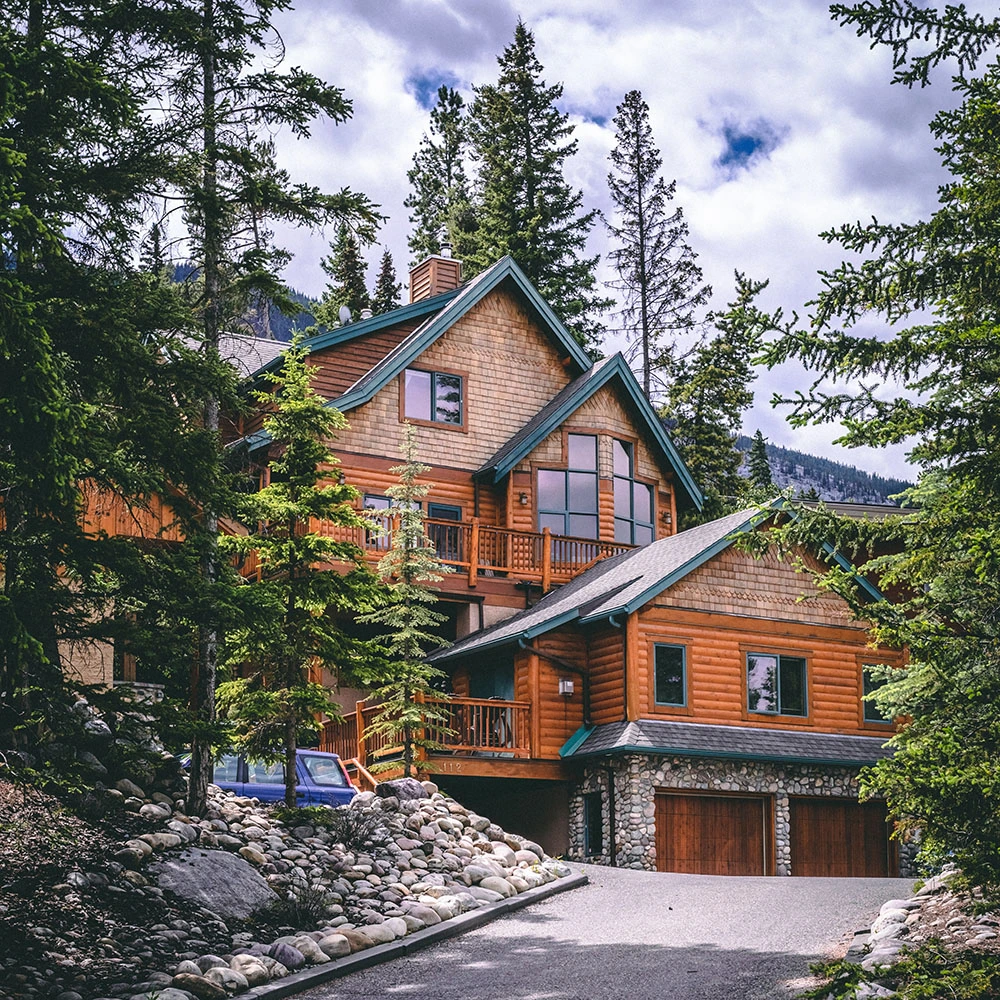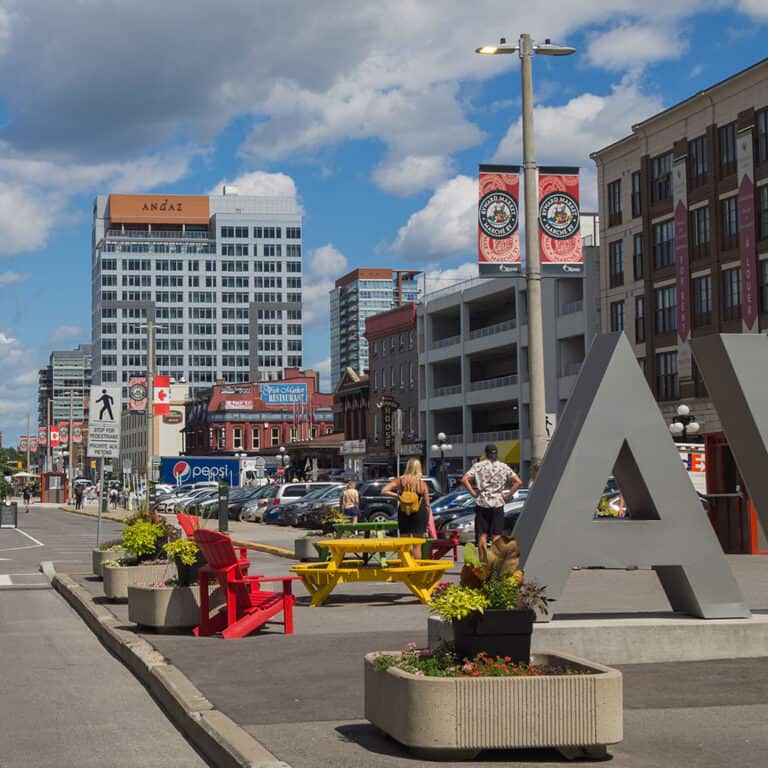Confused If The Ontario Real Estate Market Crash Soon? (hint: no)
RBC Forecaster Warns Canada Is In For A Historic Housing Correction
Did you know that the average home price in Canada can fall up to 15% by December 2023? Rising inflation and interest rates have cooled Canada’s sizzling hot real estate market, and many Canadians wonder what will happen in the future. A few realtors believe that the Ontario real estate market will crash. Others think that it will correct itself. Are we in a housing bubble? Will it be a soft landing or a recession? This article will discuss the market trends in the light of facts, statistics and experts’ opinions.

buy or sell your home?
What Is A Crash In The Housing Market?
The real estate cycle follows a four-step cyclical pattern:
- Recovery
- Expansion
- Hyper supply
- Recession
Recovery happens after recession and is characterized by low occupancy and rental rates and slower new construction. During recovery, the market gradually increases in strength and momentum.
The expansion phase is characterized by a very strong real estate market. Vacancy is low and rent rates are high.
During the hyper supply or oversupply phase, the supply will catch up and exceed the demand.
In the recession phase, the supply exceeds demand. The vacancy rate is higher and house prices start to fall.
When we apply it to the Canadian housing market, hyper supply is replaced by a phase called “demand exhaustion.” In this phase, the prices of homes fall down due to a lack of affordability instead of a surplus of housing inventory. It might result in a very quick recession.
This recession can lead to either of two things: a correction or a crash. A correction means a gradual decline in the prices, whereas a crash refers to the rapid decline in the prices that can result in a widespread panic between homeowners and investors.
Is the Canadian Housing Market Going To Crash?
It is very difficult to say so. When the prices are falling down, it is difficult to say if they will crash or not. However, once the prices settle, then you can try to join the pieces of the puzzle and analyze what happened.
A crash in the housing market can impact the various aspects of the lives of the people in Canada. Most homeowners bought homes at inflated prices or rely on homes for retirement. When the market crashes, the prices decline, and the value of the asset will reduce sharply, impacting all the segments of the Canadian economy.


How Does The Decrease In House Prices Impact Canadians?
Falling house prices result in a situation called negative equity, where your house’s worth is less than an outstanding mortgage. Negative equity results in a decline in spending and precludes an opportunity of equity withdrawal.
The decline in home prices also has a negative impact on the construction of new houses. Furthermore, the declining prices have caused disappointment for many Canadians.
Let us share the story of Aneesh Bhandari featured on CTV News. Aneesh and his wife bought a four-bedroom townhouse in Surrey, BC but planned to sell their house within a year. They wanted to move to Ontario to be closer to Aneesh’s employer’s office.
Bhandari’s were excited about their first open house and expected many showings. To their surprise, only one person came to view the property. It was an eye opener both for Aneesh as well as their realtor.
Their 167 square metre home listed for $1.15 million remained on the market for thirty days but could not be sold. He believed that the reason for it was the fact that the sellers wanted yesterday’s price whereas the buyers expected to pay tomorrow’s price. Finally, they took it off the market.
Aneesh is one of many Canadians impacted by the falling real estate prices in Canada. A drop in house prices followed by less resale activity has caused disappointment for many home sellers.
Causes of Decline in Home Prices
1. Consistent Growth in House Prices In The Past
The Canadian housing market has seen a consistent increase in prices that made home ownership less affordable for most people. On the contrary, investors and speculators have become more and more interested in real estate because they see it as a great way to make money.
The US housing market crashed during the global financial crisis in 2008, but the Canadian Real Estate Market continued to boom. This consistent growth has resulted in a sharp increase in prices, and many real estate experts believe that it is not very far away from a correction or a crash.
2. Prices Are Predicted To Decline
According to an RBC report, home prices will continue to drop till 2023. We are already viewing a similar situation in Toronto, where the prices are declining. A slight and gradual decrease is not bad. When combined with other factors like higher interest rates or mass layoffs, the prices can decline sharply and can cause the housing market to crash.
3. Government Regulations
The government has been consistently trying to avoid a housing market crash and recession. Their efforts initially focussed on trying to stop the housing prices from rising very high. In 2016 and 2017, the government introduced various new housing regulations to cool the market. The new changes worked for a while until the housing prices continued to rise again.
In July 2022, The Bank of Canada raised its benchmark interest rate by 100 basis points, bringing it up to 2.5%. This move is expected to cool the hot Canadian housing market and bring down inflation that has reached up to 8.1%.
In May 2022, home sales went down from 68,598 to 53,720 units. Will these regulations keep the housing market cool or not? It is yet to be seen.
4. Demand and Supply
The sales-to-new-listings ratio reflects the ratio of demand and supply. If this ratio is 60%, it means that there are 60 sales for every 100 new listings. Normally, a ratio between 40% to 60% is considered a sign of a balanced market, whereas the ratios above or below that range can be seen as a seller’s or a buyer’s market, respectively.
Throughout 2021, the sales-to-new-listings ratio was in the seller’s range. In fact, it reached above 80% during the second part of the year and went above 100% during December 2021.
Since the beginning of 2022, the sellers were optimistic, and the sales-to-new-listings ratio started a steep and steady decline that ended at 39% in May in the buyer’s market. As a result of an increase in supply and a decline in demand, the prices started falling.
It is also to be noted that since February, the ratio declined from a strong seller’s range of 80% to a buyer’s level of 40% till July. Most probably, the sales-to-new-listings ratio will not recover very fast, and the downward pressure on home prices will continue.
5. Home Buyers' Needs Have Changed
The Canadian real estate market has significantly changed after COVID. Previously, the prices of Condos, detached and semi-detached houses were sky-rocketing. Many people chose to live in apartments too. The pandemic has changed the housing preferences of the people. People want to live in small towns and require more space in homes for schooling, entertainment, fitness and office.
Many former urban dwellers chose to live in cottage country, resulting in a price increase there. Likewise, the demand for urban dwellings decreased. Will this trend continue, or will the demand for condos in downtown rise again? The future is unprecedented and will unfold soon.

buy or sell your home?
What is Housing Correction?
The terms “house market crash” and “house market correction” are often used interchangeably. However, they refer to two different concepts.
A relatively minor drop in the value of real estate is called a correction. The housing market is in correction if the home price index falls less than 10% from the highest point within a year. Corrections are very common, and they help in balancing the market.
On the other hand, if the price index falls by more than 10% from the highest point in a year, the market is said to be crashing. Crashes result in a strong decline in macros.


Correction Not Crash Expected in Ontario
RBC reports that a historic housing correction is on its way and Ontario and British Columbia are its epicentre. RBC reports that home prices are expected to decline by 12% from their price in February. The housing market will correct itself, but it will not crash.
Some of the affordable markets like Alberta and Saskatchewan will be more resilient, and their prices will drop by 3%. The majority of other places in the province will see a decline in house prices between 5% to 8%.
According to the report, the high-priced markets like Ontario and British Columbia will be sensitive to interest rates and could find themselves on the sidelines in greater numbers. This will lead to a more aggressive correction.
Conclusion
So, there you have it! The home market will continue to cool, and then it will correct itself. It is not going to be a spectacular crash but rather a gradual correction. That being said, it is difficult to imagine a housing market slump that would make the prices affordable again.
FAQS
An easy solution to an overpriced market is taxation. Besides taxation, it is a good idea to implement an industry watchdog to keep an eye on such transactions where homes are sold over the asking price.
Similarly, another way to cure an overpriced market is to add financing as a mandatory condition to every offer. That means that an offer can be withdrawn if the buyer is unable to arrange the mortgage required to complete a sale. Last but not least, more house supply should be introduced in the market.
It’s been a decade since the housing bubble began in Canada, and it has yet to burst. In fact, if anything, it has only grown more pronounced as time goes on. But that doesn’t mean we should stop being concerned about it!
After all, bubbles are hard to predict—that’s why they’re called “bubbles.” The Canadian real estate market is no different: it’s been growing at an unsustainable rate for years now, and there are plenty of reasons why this might be the year things finally start to slow down.
But who knows? Maybe there’s still time for you to get in on the ground floor before things really take off!
A bubble can develop in a variety of investment and financial sectors, not only real estate. In essence, investors start to buy with far greater zeal than previously for a variety of reasons. Investors’ bets on the value’s continued increase are driving prices up.
As prices increase, the perceived values of the assets separate from their actual inherent values. When a sell-off begins, something eventually sets it off, and investors scramble to exit before the market bottoms out. Prices can drop dramatically during a panic, perhaps by double digits in just a few days. Those who purchased at the top of the market and those unwilling to sell may suffer significant losses almost immediately. Bubbles are a real phenomenon. However, they are very hard to predict.
The increased price growth has made homeownership less feasible for normal people and more appealing to investors and speculators who see real estate as a fantastic way to make money. Even when declining affordability drives purchasers away from the market, prices continue to grow.
Prices have been steadily rising since the millennium, especially during the global financial crisis of 2008. According to the Canadian Real Estate Association, the Canadian average home price will peak in February 2022 at roughly $816,000. Simply put, a substantial proportion of Canadians believe that property prices are well beyond acceptable, and many.
A bubble can be defined by a sharp increase in the prices of something followed by a sharp decline. It can happen in different fields of investing and finance. Investors and buyers gradually become interested in something, as a result of which the prices are pushed higher. Very soon, the perceived value becomes detached from the intrinsic values, and investors try to sell off to save their investment. As a result of the panic, people might incur huge losses overnight. Hundreds of people had to sell at a much lower price as compared to that on which they purchased.


